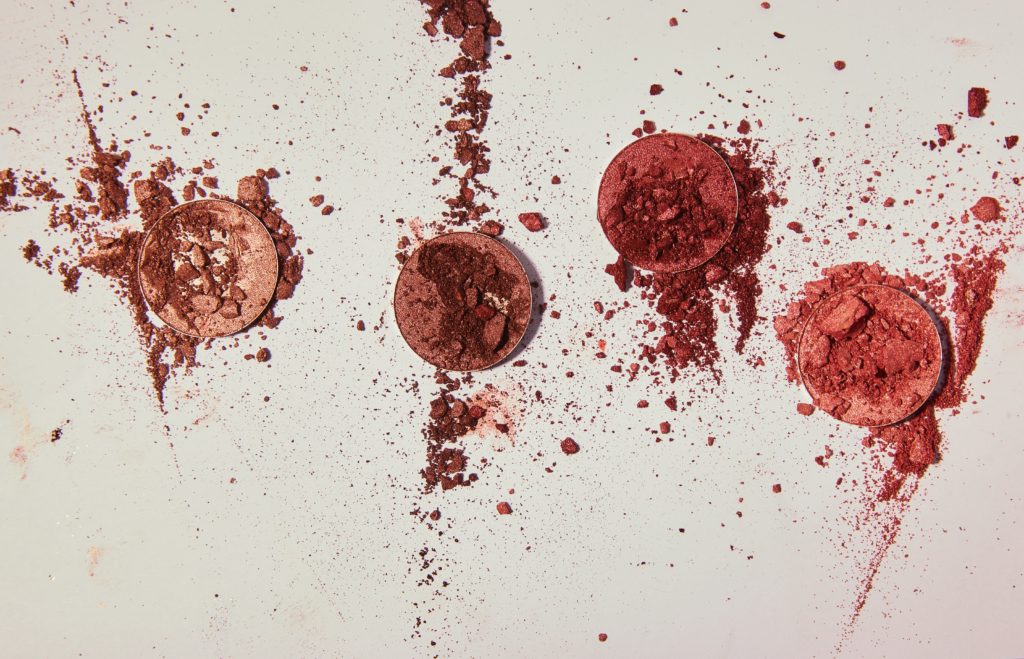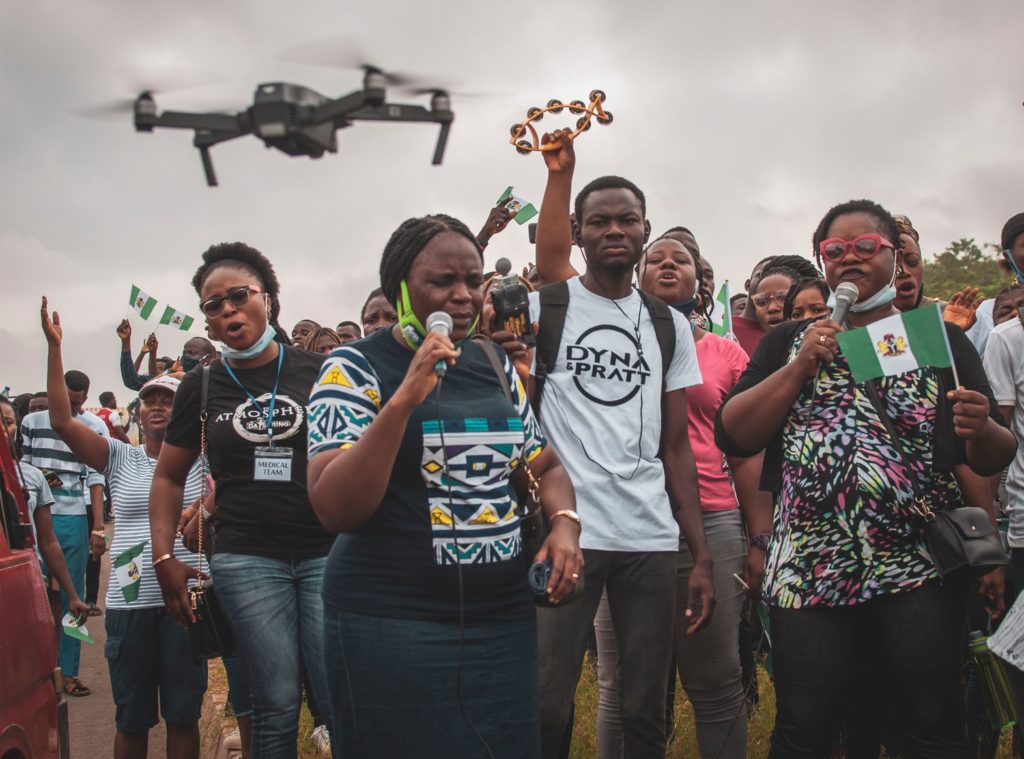When Patricia Olubunmi Etteh was elected Speaker of the House of Representatives in Nigeria in June 2007, she made history. She was the first woman to occupy that position, but media reportage downplayed her achievement. Initial commentary focused on her professional background as a hairdresser and beauty therapist, creating perceptions that she was not deserving of the post.
The portrayal of Etteh as unqualified came to a head when barely four months into her tenure, news of a financial scandal broke. She was accused of, among other things, authorising the spending of N628 million ($5 million) on renovations of her official residence and that of her deputy.
“Etteh should be recalled so that she can return to her beauty salon and resume work as a hairdresser,” wrote the Punch, one of Nigeria’s widely-read national dailies.
“What would it profit Etteh to shrug off this debilitating scandal and continue in office as Speaker, with a handbag full of cracked mirrors, facial masks and mascara?” wrote the Nigerian Guardian.

Etteh was labelled a “disgrace to womanhood”, and her private life and romantic interests became fodder for personal attacks that moved the debate away from the issue at hand.
A 2013 study that looked into this coverage as one of its case studies, noted that female politicians are more prone to criticism than their male counterparts. In the study titled Gendered Portrayal of Political Actors in Nigerian Print Media: What Impact on Women’s Political Participation?, Idongesit Eshiet wrote that “the matter attracted much more interest because politics was perceived not to be the natural domain of women.”
In contrast, media coverage of male Speaker Dimeji Bankole, who was caught up in a similar corruption scandal a year later, was different.
“The coverage of the male speaker’s corruption charge was not as sensational and he was not forced to vacate his seat,” wrote lead author Eshiet.
Moreover, his name and professional background were not regularly linked to the scandal. Instead, phrases such as “crisis in the House of Representatives” and “the Leadership of the House” were employed.
Undermining of aspirations
Negative portrayal of female politicians also includes indifference and the undermining of their bona fide aspirations. In the run-up to Nigeria’s 2015 elections, Prof Comfort Oluremi Sonaiya, a former university don, ran for presidency on the KOWA Party ticket, alongside 13 others. The line-up included the two main candidates, the incumbent, Goodluck Jonathan of the People’s Democratic Party and opposition leader, Muhammadu Buhari of the All Progressives Congress, respectively.
As the first female presidential candidate in Nigeria, she was hailed both at home and abroad. And while local media outlets portrayed her as a novelty, she did not attract meaningful media attention.
A 2018 study on gender bias in the media representation of politicians during the 2015 election, established that selected Nigerian newspapers (the Punch, the Guardian and the Daily Sun) skewed their attention in favour of male presidential aspirants, giving comparatively insignificant attention to the only female candidate. In comparison to her male counterparts, the study noted that Prof Sonaiya was not reported in the hard news format, nor did she feature on either the front or back pages of the newspapers.
Campaign coverage of Prof Sonaiya was consigned to the women’s pages and she was asked questions such as “But what gave you the courage? What has it been like as a woman in an unusual contest? So, what is the inspiration?”
She fared no better in electronic media. During an interview on Channels TV on January 7, 2015, Prof Sonaiya was asked why she joined a little-known party. Throughout the interview there was no opportunity to discuss her manifesto. In stark contrast, for the duration of his campaign, the media reported extensively on Muhammadu Buhari’s ideas on anti-corruption, national security and the economy.

In 2018, Prof Sonaiya spoke about how the media undermined her political aspirations. She recalled being referred to as a political outsider and retired university professor. While the description of her professional career was accurate, the context within which it was repeatedly applied suggested that as a teacher, she did not belong in politics. The regular line of questions during her interviews supports this notion.
In comparison, Muhammadu Buhari, the main opposition leader was described as a former military head of state. The equation of the military with masculinity, power and authority was not lost on the electorate.
Furthermore, Prof Sonaiya said the media were “fixated with the two main male candidates as if they were the only runners.” She was repeatedly questioned about what was deemed an affront to the political establishment. Her political ambition was in effect overlooked and where acknowledged, it was minimised and trivialised.
In the 2019 elections, there were six female presidential candidates, but all six withdrew their candidacy close to elections. It is not clear why they withdrew, but there were complaints that male political candidates received more publicity in the media, than their female compatriots.
Skewed framing
Media framing of women’s issues was deemed to reinforce male-domination of politics and public decision-making.
“There needs to be a conversation on the capabilities and accomplishments of female politicians, rather than their marital status, sensationalism and so on,” said Toun Okewale of Women Radio, 9.17 FM.
Negative portrayal of women in politics continues to be a major source of concern across Africa. In Nigeria, this pattern can be traced to the colonial era when women were totally excluded from the political and electoral process.
In 1922, when the principle of elective representation was introduced, election rules and regulations provided for “Every male person who is a British subject or a native of the Protectorate of Nigeria who is of the age of twenty-one years or upwards…”
This exclusion and lack of representation in early electoral politics laid the foundation for the male political class that dominated all electoral and constitution-writing activities. Pockets of early resistance from women did not receive favourable reports in the press. On Thursday May 11, 1944, the front-page of the West African Pilot, one of Nigeria’s nationalist newspapers announced: “Lagos Women Revolt against old Africa.”
Historical foundation
The news was that the previous evening, a group of women led by Mrs Oyinkan Abayomi established their own political party, Nigerian Women’s Party (NWP). For the most part, the West African Pilot regarded NWP as a party for “social ethics among the feminine community.”
Headlines and opinion pieces during the colonial and nationalist era continued to promote electoral politics and representation as a masculine endeavour. For example, in the run-up to the 1950 municipal elections in Lagos, the Nigerian Tribune published an article with the headline: In politics, it is the ability of a practical man that is required. In the text, the writer wrote:
“The sole purpose of an electioneering campaign is to ensure that the best men from the practical point of view are returned as members of the Council.”
Historical press reports show that female politicians also endured personal attacks in the press. Olufunmilayo Ransome-Kuti who led the Abeokuta Women’s Tax Protests in 1948 was subjected to negative editorials, reports and articles in a bid to undermine her political activism and hopes to contest in Federal Elections.
Headlines such as “Mrs F. Kuti must be checked” and “That Woman Again” were published in the Nigerian Tribune. An editorial on Saturday, February 11, 1950, referenced the women’s tax protests. Titled ‘The Women are Ambitious,’ it said:
“For 18 months, Abeokuta has been in a muddled state, and to let absolute power pass into the hands of the women now is to assure that the whole administrative machinery collapses … it is necessary that they stop it not only because of the loss of prestige for their allowing the women to overwhelm them, but also because Egba affairs need very badly now the efficient, wise and firm control which a masculine personality assures.”
Fairness and balance
Biased and stereotypical reportage and even verbal abuse, continued into post-colonial Nigeria. Thus, as the political transition programmes prosecuted by the military-led administration gradually unfolded, gender activist and poet, Prof Molara Ogundipe-Leslie wrote an article titled: The Image of Women and the Role of the Media in a New Political Culture in Nigeria.
“The press must be fair and objective in reporting issues that affect women. I have noticed a politics of exclusion and media black-out in the handling of events. Women’s presence, speeches and photographs are often ignored or man-handled in reporting public events. What women say or think is not considered material for news or consideration while men are quoted copiously. The press must do better in the new political culture,” she said.
Not much has changed since then, as the media relentlessly equates political activity with masculinity. Male ownership of media news outlets promotes gendered political interests and aspirations and this impacts adversely on female participation and representation in electoral politics.
In recent years, however, efforts have been made to roll back this pattern. In the run-up to Nigeria’s most recent election in 2019, a series of workshops and seminars were held in conjunction with media professionals to explore how to best promote balanced coverage and portrayal of female political candidates. It did not yield any immediate benefits during that election, but a foundation has been laid for deep change for the next election cycle in 2023. A fairer and balanced media representation on women politicians will promote an inclusive and people-based democracy.
Agunbiade is author of the e-book: Emerging from the Margins: Women’s Experiences in Colonial and Contemporary Nigerian History.
Send your thoughts and feedback to editor@africanwomeninmedia.com
Subscribe to our newsletter to receive news, opportunities and updates



